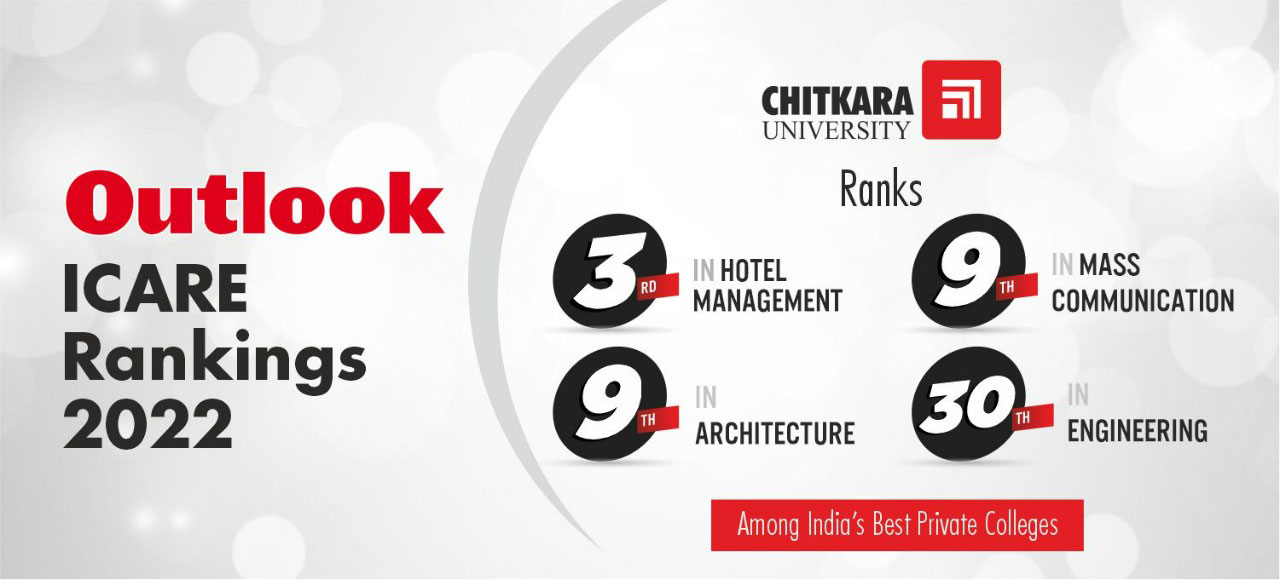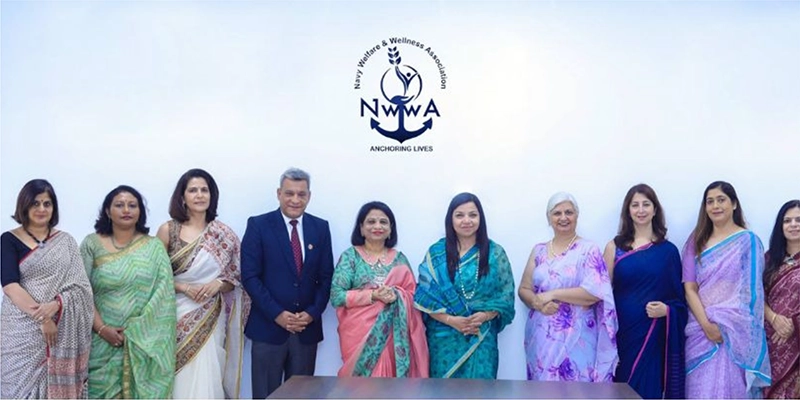Chitkara University dominates the Outlook-ICARE Rankings 2022: India’s Best Colleges

Chitkara School of Hospitality has been ranked 3rd among ’Top 32 Private Hotel Management Institutes in India’; Chitkara School of Planning and Architecture has been ranked 9th among the ’Top 30 Private Architecture Colleges in India’; Chitkara School of Mass Communications has been ranked 9th among the ’Top 35 Private Mass Communication Colleges in India’; Chitkara University Institute of Engineering and Technology has been ranked 30th among ’Top 100 Private Engineering Colleges In India’; Chitkara University Institute of Engineering and Technology has been ranked 49th among ’Top 134 BCA Institutes In India’ and Chitkara Business School has been ranked 51st among ’Top 134 BBA Institutes In India’ by in the Outlook-ICARE Rankings 2022: India’s Best Colleges.
The Outlook-ICARE India MBA Rankings survey is a fully results-based evaluation created with in-depth industry knowledge and backed by reliable research. In this survey, characteristics that are globally applicable and employment-focused are evaluated for private Indian institutions that offer MBAs and similar management degrees. The Indian Centre for Academic Rankings and Excellence (ICARE), a reputable government-approved academic audit and ratings institution, analyses and creates the rankings. The Outlook ranking is based on several parameters such as Faculty-Student Ratio (FSR), Research Productivity and Quality, Faculty with PhD, Faculty Experience (Teaching/Corporate), Gender Diversity, Regional Diversity, Median Salary and Employability. Outlook uses data sourced from NIRF, AISHE, UGD, AICTE, NAAC, mandatory disclosure of institutions and institute websites to produce the all-India rankings, annually.
Around the world, higher education systems are fast growing to accommodate the rising demand and need for education. In a globalised world, more access to higher education improves individual opportunity as well as country economic development and competitiveness. In this shifting environment, quality and accountability have taken on greater significance for governments and educators all around the world. In many developing countries, rankings, ratings, and national assessment and accrediting systems have a significant impact on governance and internal administration of higher education institutions as well as relationships between institutions and governments and stakeholders.













